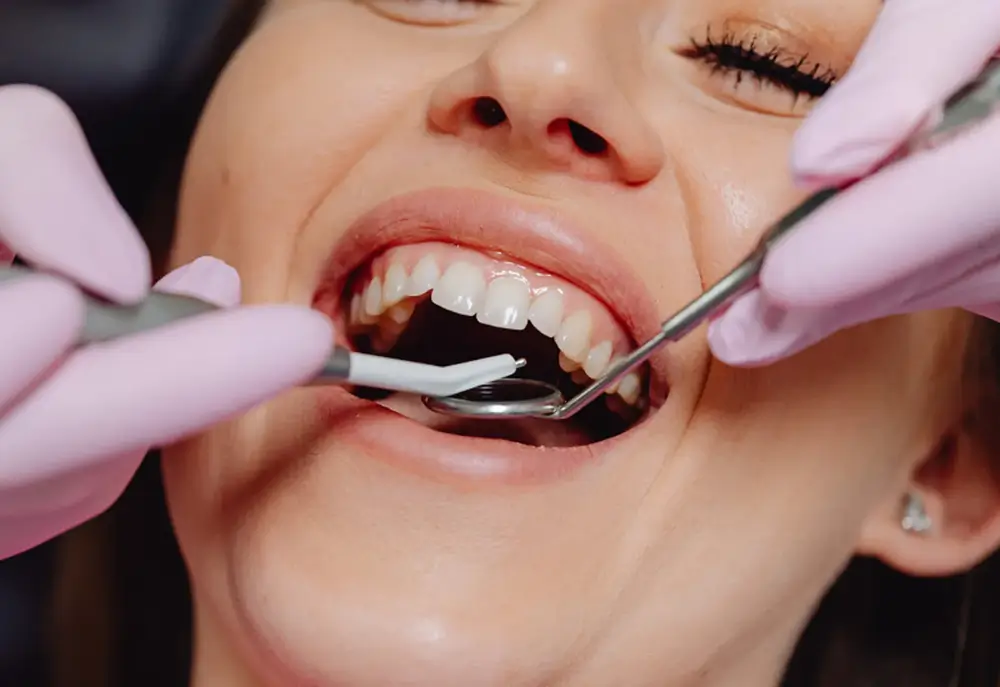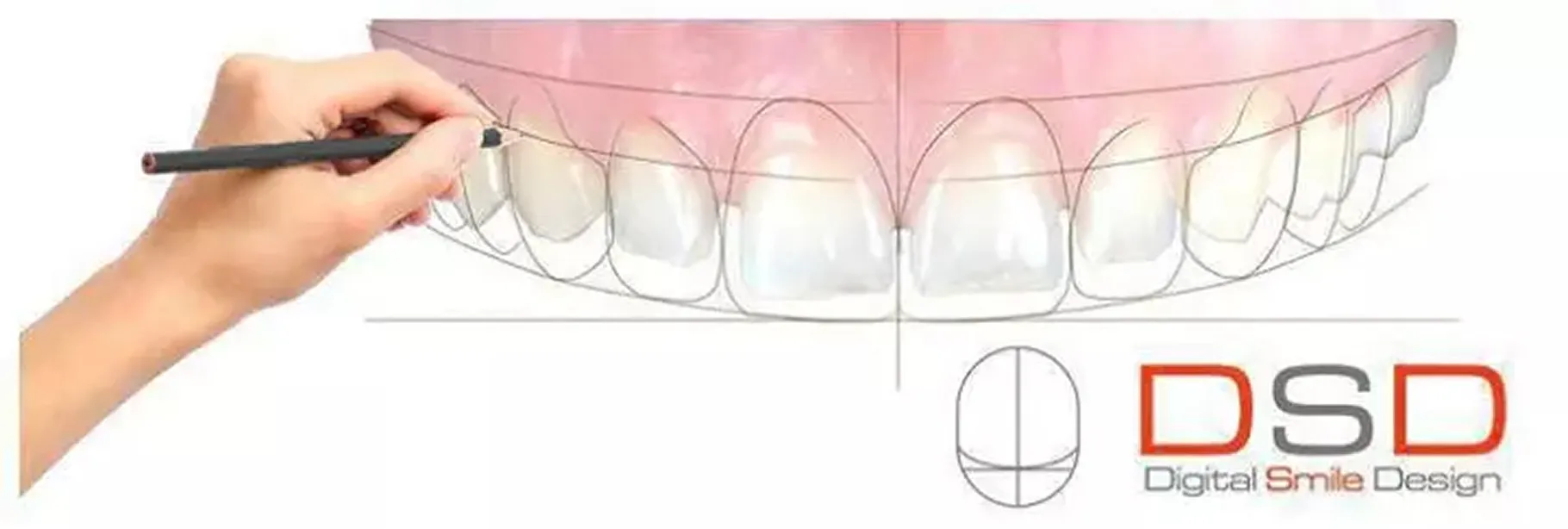


Considering veneers to transform your smile? You're not alone; dental veneers are a popular cosmetic dental treatment. But it's likely you're wondering: 'how much do veneers cost in Melbourne?'
Veneers cost in Melbourne typically ranges from $400–$1,200 per tooth for composite veneers and $1,400–$3,000 per tooth for porcelain veneers. The exact price depends on factors like the type of veneer, the number you need, the complexity of your case, and your dentist’s expertise. At Arc Dental, we offer both composite and porcelain veneers as part of a personalised smile design, with payment plans available to make treatment more accessible.
And right now, we’re offering a complimentary 60-minute veneers consultation to help you explore your options. Curious about what veneers can really do for your smile, and how much they cost in Melbourne? Keep reading to find out.
Dental veneers are thin, custom-made shells that are bonded to the front surface of your teeth to improve their appearance. Made from either porcelain or composite resin material, veneers are a popular cosmetic dental treatment for creating a natural-looking smile that’s straighter, whiter, and more uniform.
Veneers are a common part of a smile makeover and are designed to blend seamlessly with your natural teeth for a radiant, high quality finish.
Veneers may be suitable if you want to improve the appearance of your smile without undergoing more invasive dental procedures. They are often recommended for people with:
Veneers may not be the right option for everyone; that’s why we offer a complimentary 60-minute consultation where we can discuss all your treatment options.

Porcelain and composite veneers can address a range of cosmetic concerns, including:
However, veneers are not designed to replace missing teeth or treat severe misalignment. In those cases, other treatments like dental implants or Invisalign may be more suitable.
{{BANNER}}
There are two main types of veneers used in modern dentistry: composite and porcelain — both of which have their pros and cons.
At Arc Dental, we offer both porcelain and composite veneers so you can choose the option that best suits your goals, budget, and timeframe.
Wondering how much dental veneers cost in Melbourne? On average, expect to pay:
These ranges reflect the composite and porcelain veneers cost in Melbourne. Prices may vary depending on your location, personalised treatment plan and the expertise and skill of your dentist.
At Arc Dental Surrey Hills, composite veneers cost from $600 per tooth; porcelain veneers start from $2,000 per tooth. However, we understand that dental veneers are an investment in your confidence. That’s why we offer flexible payment plans and financing options to make treatment more accessible.
You can choose to:
This means you can pay for your dental veneers in manageable instalments, making it easier to achieve your radiant smile without the stress of a large upfront cost.
Note: terms, conditions, fees and charges may apply.

When estimating veneers cost Melbourne, there’s no one-size-fits-all. Several key factors influence the final price you’ll pay. Understanding these will help you compare quotes more wisely and plan your budget with confidence.
This is often the biggest cost distinction. Porcelain veneers are typically more expensive because of their superior aesthetics, durability, and stain resistance. Composite veneers (resin-based) cost less to produce and place, and may be easier to repair or adjust, but they may not last as long or match the translucency and strength of porcelain.
Whether you’re fixing one problematic tooth or need a full set of veneers for a complete smile makeover makes a difference. A single dental veneer is significantly cheaper than doing 6, 8, or 10 teeth.
Not all veneer cases are straightforward. If you have bite issues, misalignment, worn teeth, missing enamel, or uneven gum lines, extra corrective work may be needed before veneers can be fitted properly. These additional treatments add to the cost.
Some labs use premium ceramic, high-translucency porcelain, or advanced bonding techniques. Others use more basic materials, which can reduce the cost.
The ceramist or dental technician making the dental veneers also matters. A master ceramist crafting high-precision, custom work will raise the cost, while a less experienced technician or outsourced lab may reduce the price. The quality of their work will reflect in the fit, finish, and longevity of your veneers.
Similarly, digital technologies (e.g. 3D scanning, digital smile design, CAD/CAM milling) may add a cost premium but often improve accuracy, predictability, and final aesthetics.

The skill, experience, and reputation of your cosmetic dentist can significantly affect the fee. A dentist with advanced training, strong aesthetic credentials, or a high standard of finish may charge more for veneer placements than a less experienced provider.
As a Digital Smile Design Master, Dr Yi Chan has been recognised for her outstanding personalised design, planning, and aesthetic smile makeover results. Created by renowned dentist and ceramist Dr Christian Coachman, DSD combines digital photography and facial analysis to create a personalised and predictable smile. Patients may also preview their new smile before treatment begins. Seeing and feeling what your future smile could look like allows you to actively participate in the design and feel confident the outcome will align perfectly with your goals.
Dental clinics in premium inner-city or high-demand suburban areas may charge more due to higher operating costs.
Getting dental veneers in Melbourne usually involves the following steps:
We’ll assess your smile, discuss your dental concerns and create a personalised treatment plan with a full outline of the costs.
In some cases, Digital Smile Design (DSD) technology may be used to preview your new smile.
For porcelain veneers, during your first visit a small amount of enamel may be removed from the surface of your teeth.
Porcelain veneers are crafted in a lab and usually placed at your second visit, while composite resin veneers are applied in a single visit.
Dental veneers are carefully bonded and adjusted for a natural fit.
We’ll guide you on maintaining your veneers and keeping your natural teeth healthy.

Can’t decide between composite and porcelain veneers? It helps to focus on what matters most to you. Both options are safe and effective cosmetic dental treatments that can enhance your smile. The right choice comes down to your budget, lifestyle, and long-term goals.
If you’re after a quick refresh, composite veneers are the more affordable choice and can often be completed in a single appointment. If you’d prefer something longer lasting, porcelain veneers are typically placed over two to three appointments and require a bigger investment upfront but are designed for greater longevity.
Porcelain veneers are stronger and more resistant to stains, which makes them easier to maintain with good oral hygiene. Composite veneers are still durable, but they may require touch-ups or replacement sooner.
With composite veneers your natural tooth structure needs little to no prep. Porcelain veneers involve removing a very thin layer of enamel to ensure the best fit. This is a permanent step that’s carefully planned as part of your porcelain veneer treatment.
If your goal is a complete smile makeover, porcelain veneers often provide the most natural, long-lasting result. For smaller improvements, such as fixing a chipped edge or masking minor discolouration, composite veneers can be a great solution.
At Arc Dental in Melbourne, we’re here to help you achieve a smile that feels natural, confident, and completely your own.
Book your free 60-minute consultation today and take that first step towards a brighter, more confident smile.
Veneers are considered a long-term treatment. Porcelain veneers can last 10–20 years with good care, while composite veneers typically last around 5-7 years before they need to be replaced or repaired.
Yes. Modern dental veneers are designed to match the colour, shape, and translucency of natural teeth, creating a natural looking smile.
A smile makeover may involve 6–10 veneers. Some people may only need one or two veneers to achieve their goal. It really depends on the individual case.
A thin layer of enamel is usually removed for porcelain veneers, but this is minimal and does not harm your overall tooth health. Composite veneers often require little or no enamel removal.
Composite resin veneers are more affordable and quicker to apply, but porcelain veneers are stronger, more durable, and more resistant to staining.
No, generally Medicare doesn't cover the cost of dental veneers as they're considered a cosmetic treatment. However, some dental insurance plans may provide coverage for a portion of the cost of veneers, depending on the specific policy you have.
No, veneers cannot be whitened. If you want a brighter overall smile, it’s recommended to undergo teeth whitening before your veneers are placed so they can be matched to your new shade.
Good oral hygiene habits are important to maintain porcelain and composite veneers. Regular dental check-ups are also recommended after getting veneers to ensure a healthy smile.
Other cosmetic dentistry or orthodontic treatments may be used as an alternative to veneers. These include teeth whitening, dental crowns, braces or Invisalign.


